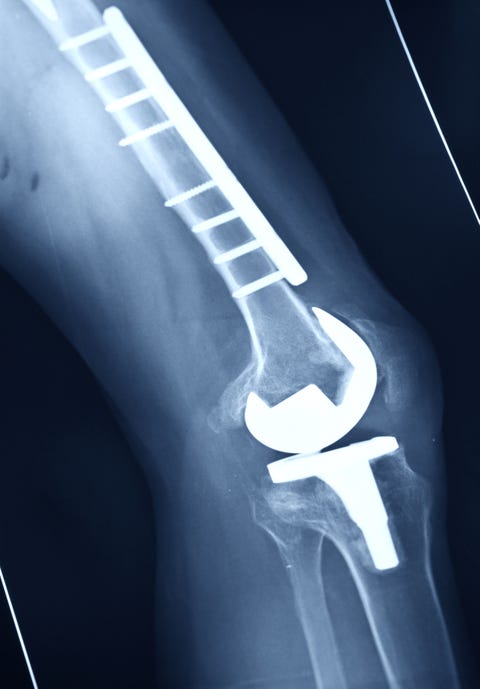Do You Really Need a New Knee?

A recent study found that a third of the more than 600,000 knee replacements done annually in the U. S. may not be necessary. Other research finds that more than 10 percent of patients aren’t satisfied with the results.
“You need to have moderately advanced arthritis and to have failed conservative care for total knee replacement to be appropriate,” says orthopedic surgeon Nicholas DiNubile, M.D.

Getty Imagesyodiyim
Before going under the knife (and hammer and drill), ask yourself these five questions:
1. How bad is it?
People who are dissatisfied after surgery tend to have had only mild or moderate pain, or no severe limitations on function, beforehand. Your surgeon should be able to see X-ray evidence of narrowed space in the joint or bone-on-bone.
2. How strong are my quads?
Thigh muscles move and stabilize the joint, so the stronger they are, the more satisfied you’ll likely be after surgery, reports a study published in the Journal of Orthopaedic Science.
3. How do I deal with pain?
People who fixate on pain or feel helpless in the face of it can have trouble coping with post-op discomfort and tend to be less satisfied with the results. If you are taking narcotics or opioids, Dr. DiNubile strongly advises making every effort to get off them before surgery. You’ll have better pain relief after surgery and a better surgical outcome, he says.

4. Am I prepared to do this again someday?
Prosthetic materials like titanium and cobalt-chromium alloy still don’t have the longevity of natural bone and soft tissue, so switching out knees in your 50s and early 60s may mean needing a repeat procedure in about 20 years. That’s especially true for men, whose revision rates are significantly higher than those of women—possibly because we tend to resume strenuous activities that injured us originally.
5. Have I tried everything else?
Don’t think of knee replacement as a quick fix. Despite its popularity, keep in mind that it’s still a major operation with potential risks and extensive rehab.
Source: Read Full Article



